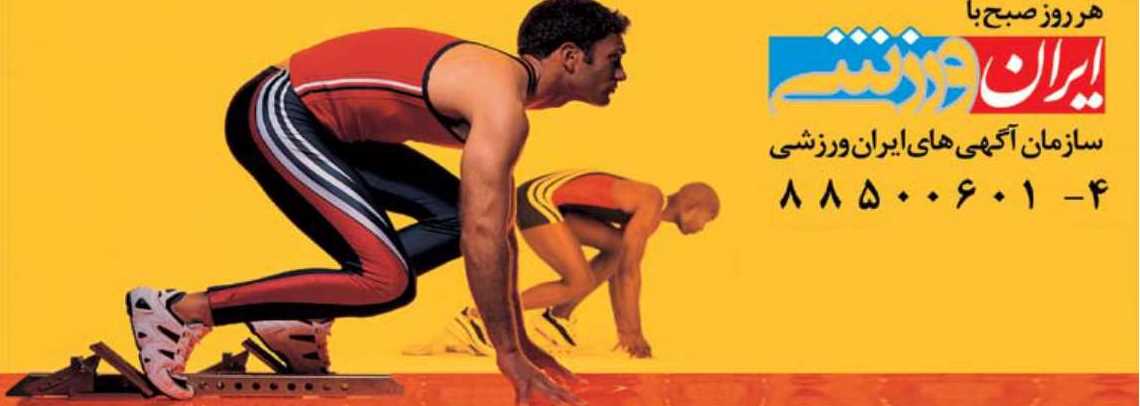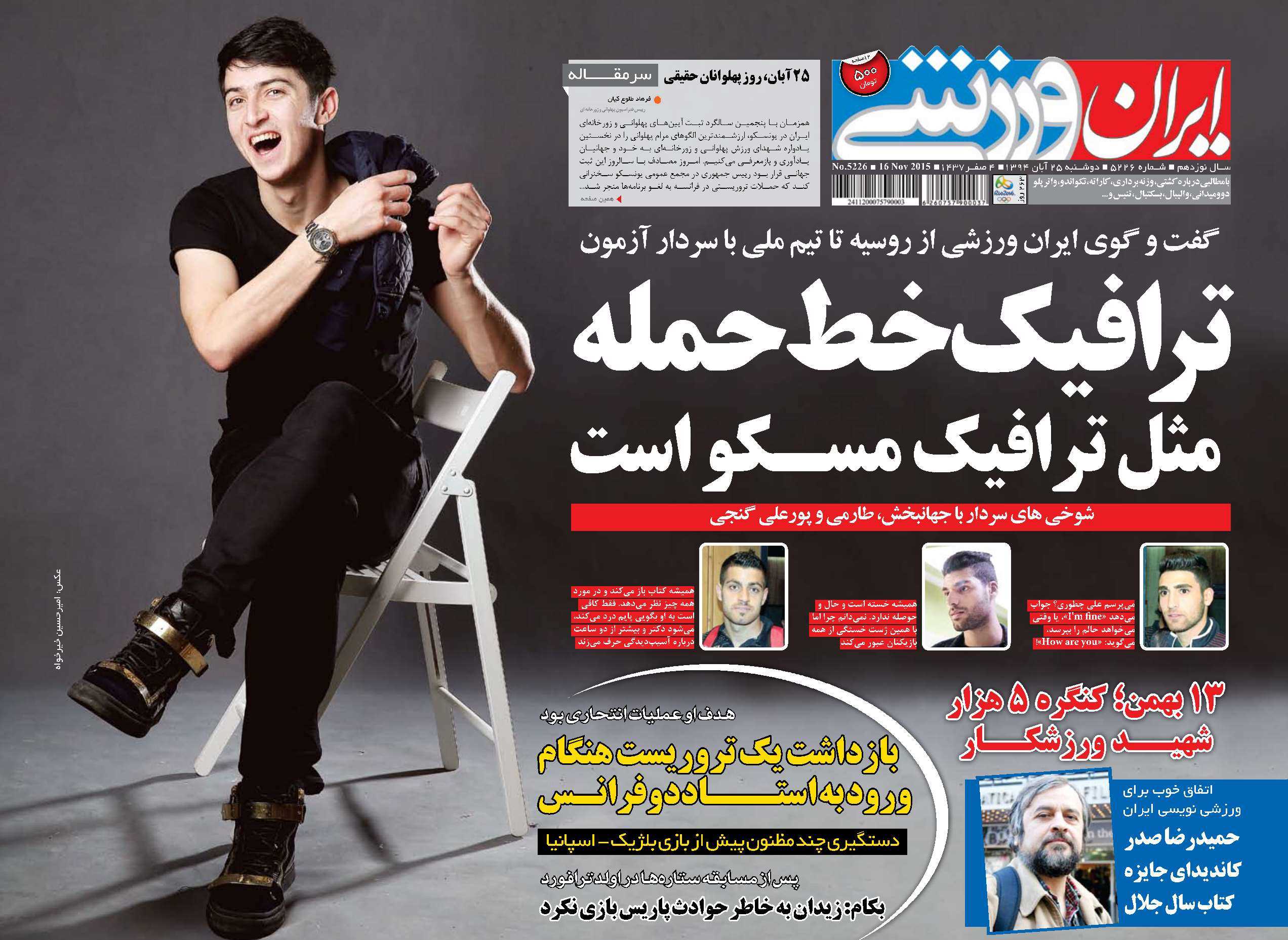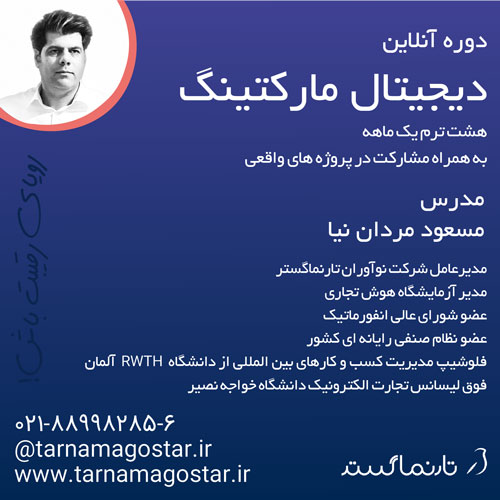عناوین این صفحه
جستجو بر اساس تاریخ
نظرسنجی
شماره : 6920 /
۱۴۰۰ پنج شنبه ۱۸ آذر
|
|
نویدکیا پای ایده فوتبال تهاجمی میایستد؟
سرمقاله
آرمن ساروخانیان
شکست 4 بر 2 سپاهان مقابل گلگهر یکی از غافلگیریهای بزرگ لیگ برتر بود. هر چند این بازی به دلیل همزمانی با دربی زیر سایه تقابل رقیبان تهرانی قرار گرفت، ولی برای سپاهان میتواند یک پیچ سرنوشتساز باشد.
این اولین بار در دوره مربیگری نویدکیا است که سپاهان از حریفش چهار گل دریافت میکند. سپاهان فصل گذشته را با شکست سه بر یک در زمین گلگهر شروع کرد و در ادامه فصل مقابل نفت مسجدسلیمان (باخت سه بر یک)، ماشینسازی (تساوی سه – سه) و شهرخودرو (باخت سه بر یک) هم سه گل خورد، ولی باخت شنبه را باید یک شوک بزرگ برای این مربی دانست که انتظار میرود تیمش در دومین فصل قوام بیشتری داشته باشد.
البته اوضاع سپاهان همچنان در جدول خوب است و همامتیاز با گلگهر و آلومینیوم در بالای جدول ایستاده، ولی دریافت چهار گل در یک بازی برای یک تیم مدعی تردیدهای بزرگی میسازد.
حسین چرخابی، مربی پیشین سپاهان میگوید: «این اولین بازی سخت سپاهان بود و گلگهر انصافاً با حساب و کتاب بازی کرد. برخی از مشکلات سپاهان خیلی روشن است و باید این مشکلات را برطرف کند. آنها در خط حمله و بازی هجومی خیلی خوب هستند اما برعکس در خط دفاع خیلی کند کار میکنند و در این خط حفرههای بسیار بزرگی میتوان دید. درست است که تا قبل از این بازی تنها یک گل خورده بودند اما این را باید قبول کنیم که گلگهر اولین حریف دشوار سپاهان بود و عیار دفاع و دروازهبان سپاهان در این بازی مشخص شد.»
نویدکیا هم مشکلات دفاع تیمش را میپذیرد: «وقتی تیمی مثل سپاهان 4 گل میخورد باید بپذیریم که روی ضدحملات حریف خیلی کند بودیم. گلگهر از نقاط پشت دفاع ما خوب استفاده کرد و توانست گلهای زیادی به ما بزند. خوردن 4 گل برای تیم فوتبال سپاهان خیلی سخت است. شرمنده هواداران هستیم و سعی میکنیم تا جایی که میشود در آینده جبران کنیم.»
نویدکیا در شروع کارش تأکید داشت که سپاهان با تفکری هجومی بازی خواهد کرد. سیستم پایه سپاهان در این دو فصل 3-3-4 بوده و با نفرات زیادی در حمله شرکت میکند. سپاهان فصل گذشته با 53 گل زده بهترین خط حمله لیگ را داشت و در فصل جدید هم فعلاً با 12 گل زده در کنار گلگهر این عنوان را در اختیار دارد. با این حال هدف اصلی سپاهان قهرمانی لیگ است و آمار گل زده به تنهایی و بدون توجه به اصول دفاع برای رسیدن به این خواسته کفایت نمیکند.
معمولاً مربیان جوان در شروع آرمانگرا هستند و اصرار به پیاده کردن فوتبال تهاجمی دارند. این مورد برای نویدکیا که هافبک خوشفکری بود و روی نیمکت تیمی پرمهره و مدعی نشسته کاملاً صدق میکند، ولی واقعیت درون زمین فوتبال با تئوریها متفاوت است و ناکامیهایی مثل شکست سیرجان شما را مجبور به تجدیدنظر در ایدههایتان میکند.
نویدکیا در روزهای گذشته قطعاً این بازی را دوباره تماشا و ضعفهای دفاعی تیمش را بررسی کرده است. تفکرات تهاجمی زمانی مؤثر است که به قیمت شکنندگی دفاع تمام نشود و مربیانی موفقترند که بتوانند بین حمله و دفاع به تعادل برسند.
ممکن است صنعت نفت آبادان، امروز در اصفهان نتواند خط دفاع سپاهان را خیلی به دردسر بیندازد، ولی اگر این مشکلات برطرف نشود قطعاً حریفان قویتر در ادامه لیگ از آن برای ضربه زدن به تیم نویدکیا استفاده خواهند کرد. سپاهان بعد از صنعت نفت به ترتیب با استقلال، پیکان و پرسپولیس روبهرو میشود و فضا دادن به این حریفان گران تمام خواهد شد.
نویدکیا نشان داده که مربی آیندهداری است، ولی در نقطهای حیاتی ایستاده و واکنش او نسبت به اتفاقات بازی گلگهر میتواند سرنوشت سپاهان در لیگ بیست و یکم را تعیین کند.
گلمحمدی: صحبتی درباره جذب قوچاننژاد نشده
درباره رادو این بار کاری از من برنمیآید
یحیی گلمحمدی در نشست خبری پیش از بازی با هوادار درباره این بازی گفت: «واقعاً بازی راحتی برای ما نخواهد بود زیرا هوادار تیم خوب، با انگیزه و دوندهای است و با توجه به فوتبالی که ارائه میدهد جایگاهش اینجای جدول نیست. اگر فکر کنیم بازی راحتی داریم کارمان سخت میشود. قطعاً بازی سختی خواهیم داشت و باید خیلی بیشتر از دیدارهای قبل برای برد تلاش کرده و تمرکز خوبی داشته باشیم تا بتوانیم برنده از زمین بیرون بیاییم. این دیدار خانگی برای ما خیلی مهم است. قطعاً گفتهام ۳۰ فینال پیشرو داریم و نباید نسبت به امتیازات آنها بیتفاوت باشیم. تاکنون که اینگونه نبوده و سعی کردهایم با تمام وجود بازی کنیم. مثل دیدارهای قبلی برای بردن و کسب سه امتیاز به زمین میرویم و انشاءالله دیدار خوبی از آب دربیاید.»
* من خودم چند بار ممانعت کردم از اینکه رادوشویچ ایران را ترک کند اما این سری بعید میدانم کاری از دست من بربیاید اما تلاش خودم را برای برگرداندن او انجام خواهم داد. به هر حال جایگاه و شخصیت تیم برای من مهم است. این وضعیت که پول هم گرفته و رفته، باید بگویم که همه ما مشکل داریم و میتوانستیم فسخ کنیم و برویم اما وقتی در پرسپولیس کار میکنیم خیلی از این مشکلات را باید به جان بخریم. برای تیمی کار میکنیم که 50-40 میلیون هوادار چشم به راه و عاشق دارد و باید برایشان بجنگیم و این کاری است که باید انجام بدهیم. باید جلوتر برویم تا ببینیم چطور میشود.
* درباره پنجره پرسپولیس نمیدانم به خدا! اگر میدانستیم بدهی کالدرون پرداخت نمیشود، بازیکن نمیآوردیم. این بندگان خدا را آوردیم، مثل توریستها میآیند و میروند. ولش کن اصلاً صحبتی در این باره نکنیم. انگار یکسری اتفاقات برای پرسپولیس همیشه رخ میدهد و باید رخ بدهد و مشکلی نیست.
* متأسفانه حافظه کوتاهمدت و بلندمدت افکار عمومی خیلی ضعیف است. فردا (امروز) اگر اتفاقی بیفتد، اولین نفری که سیبل بشود و مورد انتقاد است، سرمربی تیم است. ما هم وقتی این سمت را خصوصاً در پرسپولیس انتخاب میکنیم، باید این مسائل را به جان بخریم و پیه همه اینها را به تنمان بمالیم. من گفتم کاری که بلدیم را به قول سیدجلال انجام میدهیم که آن هم جنگیدن است؛ میجنگیم، میجنگیم و میجنگیم تا راه برایمان هموار شود. خیلی از مشکلاتی که داشتیم را با تلاش بیشتر و از خودگذشتگی توانستیم جبران کنیم و باز هم این کار را انجام خواهیم داد تا هواداران را خوشحال کنیم. امسال کار سختی را در پیش داریم و از همه هواداران، بازیکنان، مدیریت و هر کسی که دلش برای تیم میسوزد، میخواهم که کنار هم باشیم تا این مشکلات را برطرف کنیم.
* صحبتی درباره رضا قوچاننژاد نشده و نبوده. رضا را همه میدانیم چه کیفیت خوبی دارد و چه بازیکن بزرگی است اما در حال حاضر هم پنجره ما بسته است و هم در کوران مسابقات هستیم و اینکه در چنین شرایطی دنبال بازیکن باشیم، الان اینطور نیست.
* بازی بدون تماشاگر قطعاً به ضرر ما خواهد بود. بخش بزرگی از قدرت پرسپولیس هوادارانش هستند و قرار بود بازی با هوادار با تماشاچی باشد. منتظرشان هستیم برای حمایت بیشتر. ما با ذهنیت حضور هوادار وارد جلسه شدیم و قرار بود این بازی هم با حضور هواداران باشد. (یکی از خبرنگاران درباره ورود زنان از گلمحمدی سؤال کرد که او پس از مکثی کوتاه گفت: دست توی لانه زنبور کردی!)
آمریکا و متحدانش علیه چین
تحریم دیپلماتیک المپیک زمستانی پکن
المپیک زمستانی 2022 هنوز شروع نشده، حاشیههایش آغاز شده. پکن میزبان این رویداد است و ظاهراً آمریکا و شرکایش قصد دارند از این فرصت برای ضربه زدن به چین استفاده کنند. آمریکا که چند هفتهای است گفتوگوهایی با هدف کاهش روابط پر تنش بین دو اقتصاد بزرگ جهان را شروع کرده با به نتیجه نرسیدن خواستههایش، اعلام کرد که مقامات دولتی این کشور المپیک پکن در ماه فوریه را به دلیل آنچه «جنایتهای حقوق بشری چین» میداند تحریم خواهند کرد. تحریمی که آمریکا از آن حرف میزند البته تحریم دیپلماتیک است. یعنی ورزشکاران در بازیها شرکت میکنند اما خبری از حضور مقامات و فرستادههای دولتی نیست. روز گذشته مشخص شد دو کشور دیگر هم در این راه به آمریکا محلق میشوند؛ استرالیا و انگلستان. خوان آنتونیو سامارانچ که ریاست پانل هماهنگی کمیته بینالمللی المپیک برای رویداد پکن را بر عهده دارد، ضمن انتقاد از در هم آمیختن ورزش و سیاست گفت: «ما همیشه از جهان سیاسی تا حد ممکن احترام و کمترین مداخله ممکن را درخواست میکنیم.»
واکنش چین
سفارت چین در استرالیا روز چهارشنبه از این کشور خواست تا اقدامات مشخصی را برای ایجاد شرایط مطلوب برای بهبود روابط پس از پیوستن استرالیا به ایالات متحده در تحریم دیپلماتیک بازیهای زمستانی در پکن اتخاذ کند. سفارت چین در بیانیهای اعلام کرد: «همانطور که همه میدانند، استرالیا تنها مسئول مشکلات کنونی روابط چین و این کشور است.» تصمیم استرالیا مبنی بر عدم اعزام مقامات به بازیهای المپیک زمستانی پکن در تضاد با اظهارات عمومی این کشور مبنی بر به اصطلاح امیدواری به بهبود روابط چین و استرالیا است.
چه خبر از کرونا؟
به غیر از تنشهای سیاسی چین با قدرتهای اقتصادی غرب، موضوع کرونا و سویه جدیدش هم دوباره تبدیل به نگرانی برای مقامات کمیته بینالمللی المپیک شده. روز گذشته اعلام شد شرکتکنندگان در بازیهای المپیک زمستانی ۲۰۲۲ پکن در صورت تشخیص ویروس کرونا در حین مسابقات، محروم نخواهند شد و در صورتی که عفونت قبل از فینال تشخیص داده شود، ورزشکار یا تیم به طور خودکار مدال نقره دریافت خواهند کرد. بازیهای المپیک زمستانی پکن از ۴ تا ۲۰ فوریه (بهمن ۱۴۰۰) برگزار میشود.
هفته نهم لیگ یک؛قشقایی صدر را از ملوان پس گرفت
هفته نهم با نتایج قابل توجهی همراه بود. بازی تیم ملوان در ورزشگاه سردار جنگل رشت مقابل مس کرمان باز هم به دلیل حضور هوادارانشان با وقفه انجام شد. دقیقه 12 دروازه این تیم روی ضربه آوخ باز شد اما 12 دقیقه بعد حمید کاظمی بازی را به تساوی کشاند. در ادامه هم تلاش دو تیم ثمری نداشت. قشقایی شیراز هم از این فرصت استفاده کرد و با پیروزی 2-صفر مقابل ویستا توربین به صدر رفت. حملات شاگردان رجبزاده در لحظات پایانی نیمه اول نتیجه داد و سیدمحمد عابدی موفق شد در دقیقه ۴۴ دروازه ویستا توربین تهران را باز کند تا قشقایی شیراز با برتری یک بر صفر به رختکن برود. قشقایی در نیمه دوم هم در لحظات پایانی موفق به گلزنی شد و در دقیقه ۶+۹۰ توسط مرصاد فلاحنژاد دومین گل را زد. آرمانگهر نیز در خانه خود با نتیجه ۲ بر یک خیبر خرمآباد را شکست داد تا نخستین شکست خیبر تحت هدایت عبدالله ویسی را رقم بزند. آنها با این پیروزی جایگاهشان را در مکان سوم جدول تثیبت کردند. علی وزیریپناه و علی قربانخانی برای آرمانگهر گلزنی کردند و فرزاد محمدی تک گل خیبر را زد. استقلال خوزستان هم در بابل دست به کار بزرگی زد. شاگردان سهراب بختیاریزاده با گلهای امیرحسین موسیزاده و علی کیانیفر از میزبانشان پیش افتادند و در آخرین ثانیههای بازی میلاد قربانزاده یکی از گلهای رایکا را پاسخ داد اما در نهایت این آبیهای اهوازی بودند که دست پر شمال را ترک کردند.
سایپا در خانه با نتیجه بدون گل برابر پارس جنوبی جم متوقف شد تا ناکامیهای نارنجیپوشان ادامه پیدا کند. تیم فوتبال ماشینسازی در اولین تجربه هدایت مسعود حیدرزاده، باز هم نتوانست به نخستین پیروزی خود در لیگ یک دست پیدا کند و با نتیجه ۲ بر ۲ برابر شمس آذر قزوین به تساوی دست پیدا کرد تا کماکان با ۲ امتیاز در قعر جدول ردهبندی باشد. تبریزیها در حالی به تساوی رضایت دادند که 2-صفر از میهمانشان پیش بودند. تیم خوشهطلایی هم در اهواز کار بزرگی انجام داد. تک گل عرفان پورافراز سه امتیاز حساس بازی را برایشان به همراه داشت.
شهرداری همدان هم در خانه مقابل شهرداری آستارا با تساوی 1-1 متوقف شد. محمد عباستبار برای شهرداری همدان و سعید دلاور برای شهرداری آستارا گل زدند. بازی شاهین شهرداری بوشهر و مس شهر بابک هم برنده نداشت.
عنایتی: امیدوارم فقط فوتبال ببینیم و تصمیمات دیگری در آن دخیل نباشد
غلامرضا عنایتی در نشست خبری پیش از بازی مقابل پرسپولیس گفت: «در شرایط فعلی با حریف فوقالعاده قابل احترامی بازی داریم. پرسپولیس تیم بزرگی در کشورمان است و میدانیم چه بازی سختی را باید مقابل این تیم انجام بدهیم. با وجود انرژی و انگیزه خوب بازیکنانم تلاش میکنیم فردا (امروز) نتیجه بگیریم. میدانیم بازی سختی داریم اما با انگیزه بچهها انشاءالله بتوانیم مثل دیدارهای گذشته بازی خوبی انجام بدهیم و امیدوارم از این هفته، شرایط را تغییر داده و ضمن ارائه بازی خوب نتیجه خوبی هم بگیریم.» وی افزود: «متأسفانه در 8 هفته گذشته با وجود بازیهای خوبمان نتیجه خوبی نگرفتیم و این شرایط برای هوادار مناسب نیست اما اطمینان دارم با شرایط موجود جایگاهمان در جدول تغییر پیدا خواهد کرد. شرایط جدولی برای ما مناسب نیست اما اطمینان دارم با شرایط موجود وضعیت را تغییر خواهیم داد.» عنایتی در مورد اینکه پرسپولیس قهرمان پنج دوره لیگ برتر است اما نتایج امسال این تیم راضیکننده نبوده و با این شرایط فکر میکند با پرسپولیس قهرمان طرف است یا پرسپولیسی که دچار مشکل شده است، گفت: «جدول را که نگاه میکنیم فکر نمیکنم پرسپولیس نسبت به سالهای گذشته خیلی تغییر کرده باشد. پرسپولیس همان پرسپولیس است. بازیکنان با کیفیت زیادی هم دارد. مطمئناً بازی سختی داریم. ضمن اینکه تیمی هستیم که به فضای جدید آمدهایم. شرایط ویژهتری داریم و در حال کسب تجربه هستیم. میدانم که سطح فنی بچههای ما چقدر است و انرژی خوبی دارند، امیدوارم فردا (امروز) بازی خوبی را انجام بدهیم تا بدون تنش و حاشیه همه لذت ببرند. امیدوارم فقط فوتبال باشد و تصمیمات دیگری در آن دخیل نباشد. مطمئنم بچههای ما خیلی انگیزه دارند تا فردا کار بزرگی انجام بدهند.»
8 تیم پایانی جامجهانی عرب مشخص شدند
یک گام تا دوئل کیروش - برانکو
مسابقات جامجهانی عرب با حضور ۱۶ تیم از قطر چند روز قبل آغاز شد و حالا دور گروهی آن به اتمام رسید و نهایتاً هشت تیم به یک چهارم نهایی راه پیدا کردند. تیمهای قطر و عمان از گروه یک، تونس و امارات از گروه ۲، مراکش و اردن از گروه سه و مصر و الجزایر از گروه چهارم به دور دوم رسیدند. عراق، بحرین، سوریه، موریتانی، عربستان سعودی، فلسطین، لبنان و سودان هم از دور مسابقات حذف شدند. حذف عربستان –گرچه با تیم اولش شرکت نکرده بود- یکی از اتفاقات عجیب این مسابقات بوده. از بین تیمهای همگروه ایران در دور نهایی انتخابی جامجهانی تنها امارات به دور دوم صعود کرد و عراق به همراه سوریه نتوانستند صعود کنند. البته نباید فراموش کنیم که بازیکنان لژیونر تیمها همراه آنها نیستند. مثلاً تیم ملی عربستان با وجود در دسترس بودن ستارههایش از نفرات جوان بهره برد و هروه رنارد، به عنوان سرمربی اصلی تیم ملی این کشور هم کنار آنها نبود. مراکش و قطر با ۹ امتیاز مقتدرانهترین صعود را داشتند و تیم ملی عمان با چهار امتیاز، ضعیفترین تیم از لحاظ امتیازی بود که مجوز حضور در دور بعدی را کسب کرد. سودان هم بدترین عملکرد را داشت و تنها تیم بدون امتیاز مسابقات لقب گرفت. حالا در مرحله یک چهارم نهایی برنامه مسابقات بدین ترتیب است: تونس - عمان، مصر - اردن، قطر - امارات، مراکش - الجزایر. نکته جالب توجه برای فوتبالدوستان ایرانی آن است که احتمالاً در مرحله نیمهنهایی شاهد تقابل مصر و عمان خواهیم بود. مصر با هدایت کارلوس کیروش در دور گروهی هفت امتیاز گرفت و به خاطر کارتهای دریافتی کمتر صدرنشین شد و عمان با سرمربیگری برانکو ایوانکوویچ در رتبه دوم گروه نخست قرار گرفت. طرفداران این ۲ سرمربی سالهاست که با یکدیگر رابطه خوبی ندارند و از این ۲ نفر پیروی کردهاند. باید دید در تقابل احتمالی چه اتفاقی رخ خواهد داد. احتمالاً این بازی در ایران حسابی بحثبرانگیز خواهد شد. مسابقات مرحله یک چهارم نهایی طی روزهای جمعه و شنبه برگزار میشود.
|
|
آدرس مطلب:
آدرس مطلب:
آدرس مطلب:
آدرس مطلب:
آدرس مطلب:
آدرس مطلب:
آدرس مطلب:
آدرس مطلب:
آدرس مطلب:
|
ویژه نامه | آرشیو
































